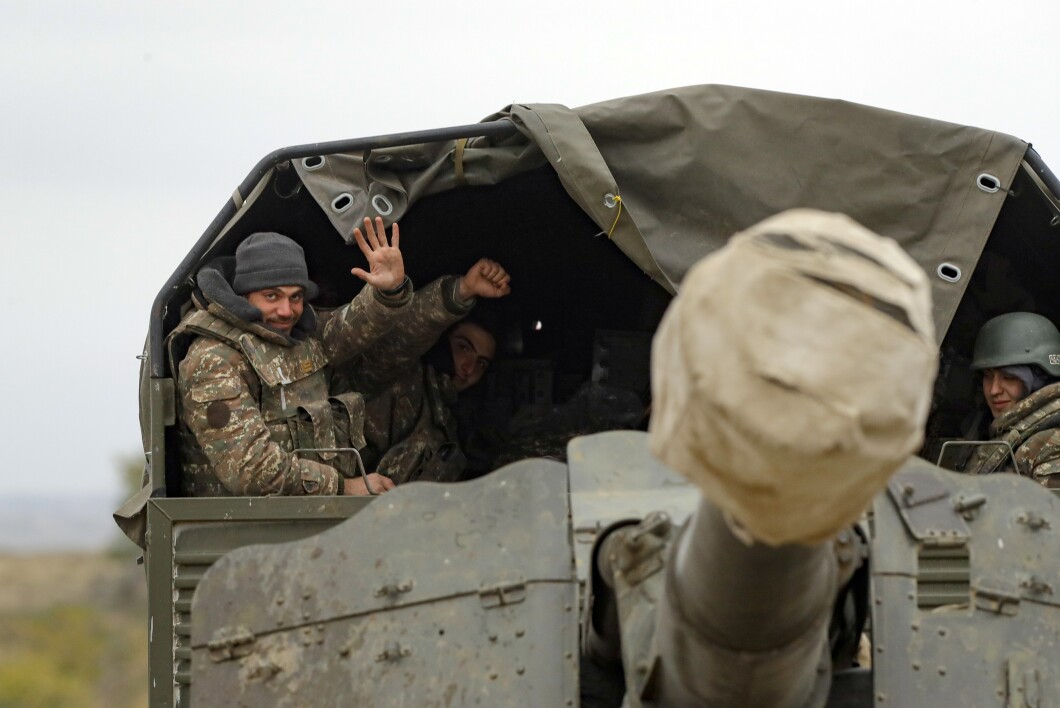
After three years of regional turmoil, Armenia, once a solid Russian ally, has begun to expand its choice of partners.
The Caucasian country has been a close ally of Russia since before World War I, when it saw Russia as its only means of survival against the genocidal Ottoman Empire. The relationship was taken up with equal vigor upon the country’s independence from the Soviet Union in 1991 when it needed a protector against its much larger neighbors, Turkey and Azerbaijan. This has continued without much trouble up until the past few years when frustrations over Russia’s actions during Armenia’s war with Azerbaijan led to feelings of abandonment. Now, some signs point to Armenia looking elsewhere for protection, particularly toward the United States.
EARTHQUAKE IN MOROCCO KILLS MORE THAN 1,000

“The Pashinyan regime clearly wants to leave the Russian orbit for the West, or at the very least balance Armenia’s dependence on Moscow,” Robert Nicholson, president and founder of the Philos Project, a group dedicated to protecting Christians abroad, told the Washington Examiner. “Armenia has seen that Russia is not a reliable protector, especially after Putin’s invasion of Ukraine and failure to lift the nine-month Azerbaijani blockade on Karabakh.”
He further argued that Armenia is closer to the West in terms of culture and politics, particularly after its 2018 Velvet Revolution.
Growing tensions between Russia and Armenia were highlighted in recent days when the Russian foreign ministry summoned the Armenian ambassador to protest the leadership of Armenia’s “series of unfriendly steps.” Among other things, Russia took issue with Armenia’s sending of humanitarian aid to Ukraine and an upcoming small military exercise with American troops, which will include 175 Armenian troops and 85 American troops.
Despite these signs of friction, a former senior official in the Armenian government, speaking with the Washington Examiner, cautioned against leaping to too ambitious of conclusions.
He pointed out that Armenia has conducted several exercises with American troops before, even contributing troops to the NATO peacekeeping force in Kosovo, which Russia opposed. These previous exercises and sending of troops were conducted while relations with Russia were rosier than ever.
According to him, Armenia’s overtures toward the West are not intended as slights against Russia but are primarily seen as the small Caucasian country simply engaging with the international community on a sovereign basis.
Intentional slights against Russia would be completely irrational, he argued, and are not being pursued by the Armenian government. Armenia is a small, landlocked country flanked by two belligerent powers, and it cannot afford to lose its traditional protector at a critical time. Russia perceiving slights against itself is the country simply misinterpreting Armenia’s stance, which views the current geopolitical situation in less black-and-white terms, the official said.
Another key element missing in analyses optimistic about Armenia abandoning Russia for the West is that the Armenian public feels almost equally betrayed by the European Union. The senior official said the phrase “value-based relationship” has become a term of mockery among Armenians following European Commission President Ursula von der Leyen’s use of the term during a trip to Azerbaijan last year when she took a praiseful approach toward the country in an effort to secure non-Russian oil. The contrast between the West’s reaction to the War in Ukraine and the Armenian-Azerbaijani War has also become a source of bitterness, according to the official.
CLICK HERE FOR MORE FROM THE WASHINGTON EXAMINER
There’s also the issue of the limits of U.S. support in the region. The official cited the example of Georgia, where U.S. diplomats warn Tbilisi against making too overt overtures in fear of enraging Moscow. Overestimating Western support led to a short but devastating war in 2008, one that Armenia is cautious not to recreate.
Meanwhile, tensions between Yerevan and Baku have begun to heat up once again, with military buildups on both sides. The official believes that a renewal of the 2020 war is likely and reliant on the calculations of Baku and whether they think another invasion would be sustainable. At the current rate, he warned that it might be.





